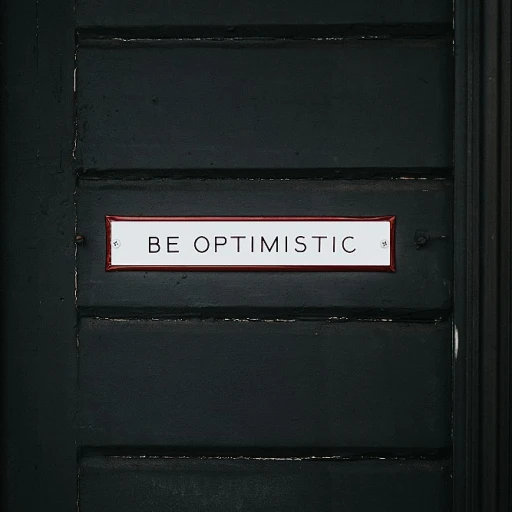
Understanding Candidate Experience in Construction
Grasping the Essence of Candidate Experience in the Construction Sector
Candidate experience is a critical aspect of the recruitment process, especially in the construction industry where project timelines and the acquisition of skilled workers are vital to success. Understanding this concept involves recognizing the touchpoints that candidates encounter during their journey with a construction company. Recruiters need to focus on the entire customer journey, from the initial job search to the post-interview feedback. The aim is to ensure candidates receive a seamless and positive experience throughout their interactions with the company. This not only enhances satisfaction but also builds a strong image of the organization as an employer of choice. A well-designed candidate experience can significantly impact client satisfaction and the overall reputation of construction companies.- Implementing satisfaction surveys focused on candidate experience can provide actionable insights into areas that need improvement. By regularly conducting these customer surveys, companies can gauge the effectiveness of their recruitment processes and make necessary adjustments.
- Ask open-ended questions in your surveys to collect comprehensive insights. This allows candidates to express detailed feedback, offering a deeper understanding of their experiences and expectations.
Effective Communication Strategies
Building Bridges with Clear Communication
In the construction industry, effective communication is the cornerstone of a positive candidate experience. It’s not just about keeping candidates informed; it’s about creating a dialogue that fosters trust and transparency. This is crucial in an industry where projects are complex and timelines are tight. Here are some strategies to enhance communication:
- Timely Updates: Keeping candidates informed about their application status is essential. Regular updates can prevent frustration and keep candidates engaged. Use automated emails to provide real-time updates, ensuring candidates are never left in the dark.
- Personalized Communication: Tailor your messages to address the specific interests and concerns of each candidate. This can be achieved by using data from previous interactions or surveys to understand their preferences and expectations.
- Open Channels: Encourage open-ended questions during interviews and feedback sessions. This not only provides candidates with a platform to express their thoughts but also offers valuable insights into their experience with your company.
- Feedback Mechanisms: Implement satisfaction surveys to gather customer feedback on the recruitment process. This can help identify areas for improvement and enhance the overall candidate experience.
By focusing on these communication strategies, construction companies can significantly improve their candidate experience, leading to higher satisfaction rates and better client relationships. For more insights on enhancing candidate experience in niche industries, explore opportunities in Gulfstream pilot careers.
Leveraging Technology for Better Engagement
Integrating Technology for Enhanced Candidate Connections
In today's fast-paced construction industry, leveraging technology is not just beneficial—it's essential for enhancing candidate engagement. By using innovative tools and platforms, construction firms can streamline communication and provide a seamless candidate experience. One of the most effective ways to enhance candidate communication is by incorporating automated systems for real-time interactions. These systems can send timely notifications to candidates about their application status or upcoming interviews, making the process more transparent. Additionally, integrating chatbots on company websites adds value by providing instant answers to candidates' common questions, thereby improving the overall customer service. Furthermore, to gain actionable insights into the candidate's experience journey, companies can utilize customer feedback mechanisms, such as satisfaction surveys and customer surveys. Constructing survey questions that solicit genuine feedback can provide valuable data on areas needing improvement. For instance, open-ended questions in surveys allow candidates to share their unique perspectives, offering a deeper understanding of their experience. Technology also enables construction companies to gather and analyze customer satisfaction data, which can be pivotal in refining recruitment strategies. Using customer satisfaction survey results as a template for continuous improvement can help recruiters identify best practices and rectify any issues that hinder the candidate experience. Moreover, customizable survey templates can be deployed to track the Net Promoter Scores (NPS) of candidates, which measure their likelihood to recommend the company’s hiring process to others. This metric serves as an important indicator of client satisfaction and engagement. Incorporating candidate feedback into the company's strategic planning not only enhances the candidate experience but also elevates the construction company's brand reputation. It's crucial for recruiters and hiring managers to adapt and evolve with the changing technology landscape to ensure a positive and productive engagement with potential candidates. For more strategies on effective communication in recruitment, consider reading about [crafting equitable hiring letters for a better candidate experience].Feedback Mechanisms and Their Impact
Building an Effective Feedback Loop
In the construction industry, implementing robust feedback mechanisms is essential for enhancing candidate experience. A well-structured customer feedback system can provide valuable customer insights and pave the way for continuous improvement in your company’s interactions with candidates. A customer satisfaction survey is a pivotal tool that offers real-time data, which can be leveraged to understand how candidates perceive your recruitment process. Best practices involve using a survey template that accommodates varied feedback, from closed-ended survey questions that rate specific aspects to open-ended questions that unveil deeper insights. To ensure customer satisfaction, identify the key touchpoints where candidates interact with your construction company. Tailor satisfaction surveys to evaluate these points, creating a comprehensive customer journey map that illustrates the candidate’s path from application to onboarding.Designing Surveys for Actionable Insights
Crafting effective survey questions is crucial. Consider mixing quantitative and qualitative elements for a balanced approach. Quantitative questions provide data-driven metrics, while qualitative ones, such as open-ended questions, offer narratives that enrich understanding. Adopt Net Promoter Score (NPS) as a standard measure to gauge overall client satisfaction. This metric, derived from customer survey responses, assigns measurable value to your company's service, helping to identify areas of success and those in need of enhancement. Regularly collecting and analyzing customer feedback allows construction companies to create a dynamic feedback loop. This loop not only improves product service offerings but also refines customer service, ensuring a positive candidate experience and fostering a thriving feedback culture.Utilizing Technology for Feedback Analysis
The construction industry can benefit from leveraging technology to streamline feedback collection and analysis. Employ digital tools to conduct efficient client satisfaction surveys, enabling your team to quickly extract actionable insights from gathered data. By integrating these tools into your feedback mechanism, your company can respond promptly to candidate needs, creating an adaptable environment that aligns with industry demands. This alignment enhances not only the candidate experience but also strengthens company reputation and effectiveness in the recruitment process. Developing such a feedback-rich culture requires ongoing effort but yields considerable rewards, advancing the candidate experience in construction projects and ensuring a competitive edge in attracting top talent.Training Recruiters for Better Candidate Interaction
Empowering Recruiters through Comprehensive Training
In the construction industry, where projects demand precision and efficiency, ensuring that recruiters are well-equipped to interact with candidates is crucial. The quality of interaction between recruiters and potential hires can significantly influence the candidate experience.
Here are a few key components to focus on while designing a recruiter training program:
- Understanding the Candidate's Perspective: Recruiters should empathize with candidates, recognizing the challenges they face during the application process. By understanding their journey, recruiters can ensure a more personalized interaction.
- Effective Communication: Providing clear information about the role, expectations, and the company culture is paramount. Recruiters should tailor their approach for each candidate, enhancing clarity and engagement as mentioned in other sections about communication strategies and leveraging technology.
- Utilizing Feedback Mechanisms: Training should incorporate best practices for collecting and analyzing candidate feedback. Recruiters should be adept at using satisfaction surveys and understanding data insights to refine the recruitment process.
- Addressing Open-ended Questions: Encouraging recruiters to ask open-ended questions can elicit deeper responses from candidates, offering a better understanding of the candidate's potential fit within the company.
- Implementing Customer Service Standards: As recruiters represent the company's brand during the hiring process, training them on customer service standards ensures a consistent, positive experience for candidates.
- Leveraging Technology: Incorporating the use of CRM tools can provide real-time insights into candidate interactions, helping recruiters maintain a high level of engagement.
By investing in these areas, construction companies can foster an environment where recruiters feel supported and empowered to enhance the candidate experience effectively. This strategic approach not only benefits the candidates but also contributes to the overall success and reputation of the construction company.
Measuring Success: Metrics and KPIs
Assessing Achievements with Quantifiable Indicators
Effectively measuring candidate experience can transform a construction company's recruitment process from good to exceptional. Understanding success metrics requires a nuanced approach that combines quantitative data with qualitative insights. Here’s how you can measure your progress with precision and gain actionable insights.- Customer Satisfaction Surveys: Regularly conducting satisfaction surveys can yield insights into your candidates’ journey. Use a survey template to structure your questions and focus both on specific interactions and the overall recruitment process. Remember to include open-ended questions to capture the nuances of candidate feedback.
- Net Promoter Score (NPS): Implementing an NPS can quantify candidate satisfaction and willingness to refer others to your company. Ask candidates how likely they are to recommend your construction company on a scale of one to ten. This serves as a reliable indicator of overall sentiment.
- Feedback Collection: Enable continuous feedback loops by providing real time feedback opportunities. This method allows you to gather valuable insights during different stages of the candidate journey, offering a more responsive service approach.
- Qualitative Feedback Mechanisms: Consider in-depth interviews or focus group discussions to understand the specific areas of a candidate's experience. This approach helps gain granular insights beyond standard survey feedback.
- Conversion Rates: Monitor conversion rates at each step of the recruitment process. By understanding where potential candidates drop off, you can refine and optimize steps to keep them engaged.
- Time-To-Hire Metrics: Measuring how long it takes to fill positions offers direct insights into recruitment efficiency. An extended hiring time could indicate issues in communication or process bottlenecks.













